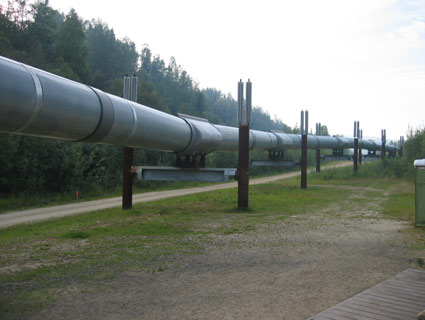TransCanada, the energy company that wants to build a 1,661-mile pipeline from Alberta, Canada, down to Texas, keeps insisting that its project would be “among the safest pipelines in North America.” But a new report from a University of Nebraska professor indicates that the worst-case spills could be a lot more devastating than the company has predicted, and there could be a lot more of them.
The Keystone XL has already drawn criticism for several reasons: It would bring some of the world’s dirtiest oil into the US, it would cross a massive aquifer that provides water to much of the Great Plains, and it’s up for consideration at a time when Americans have been hearing an awful lot about oil spills. There have already been numerous leaks on TransCanada’s original Keystone pipeline, and this month’s Yellowstone River spill certainly hasn’t made the Keystone XL sound any better.
TransCanada cliams that we can expect 11 significant spills— or spills totaling more than 50 barrels of oil each—on the pipeline in the next 50 years. But John Stansbury, an associate professor of environmental and water resources engineering at the University of Nebraska, has caluculated that TransCanada’s presumptions are probably way off. Stansbury figures that it’s probably more like 91, given historical data, known information about this type of pipeline, and the type of oil it would transport.
Stansbury also found that the amount of time it would take to turn off the pipeline would probably be about two hours, though the company claims it can have it shut down in 11.5 minutes. By comparison, it took 12 hours to shut down the Enbridge pipeline in Michigan when it spilled last summer; the Yellowstone spill took nearly an hour.
The report also included some shocking figures about how bad a worst-case scenario spill could be: A spill in the sandhills above the Ogallala Aquifer could dump as much as 180,000 barrels, tainting the vast water supply in the region. A spill on the Yellowstone River, which this pipeline would also cross, could release 140,000 barrels—considerably more than the spill earlier this month.














